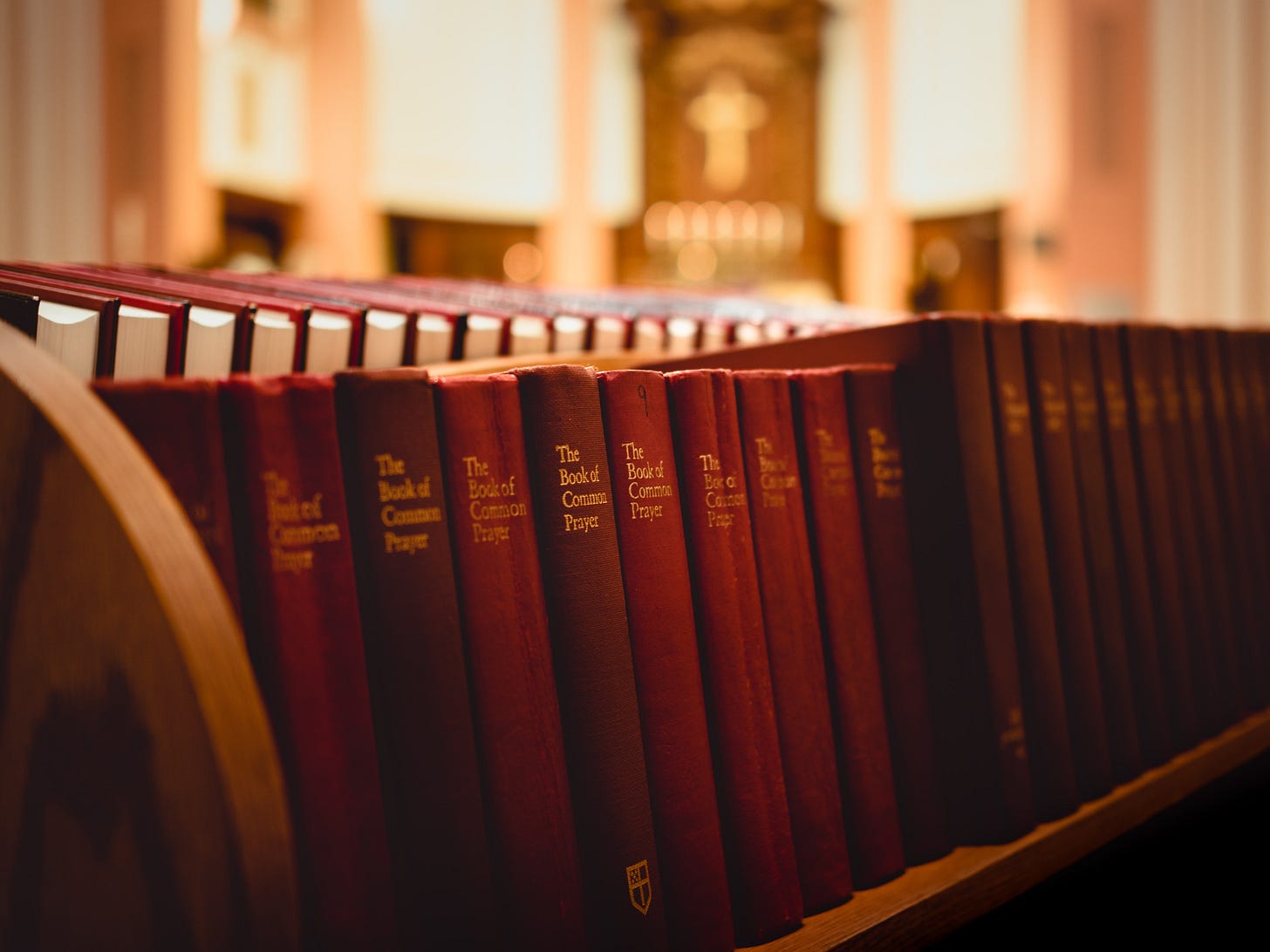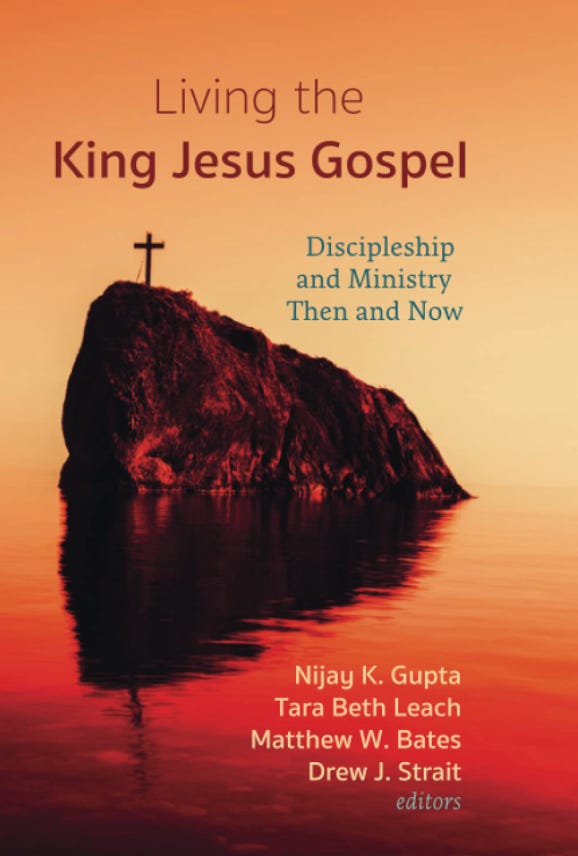The 11th chapter of the tribute volume, edited by my friends Nijay Gupta, Tara Beth Leach, Matt Bates, and Drew Strait for co-editing the volume, Living the King Jesus Gospel: Discipleship and Ministry Then and Now, is written by my Bishop, Todd Hunter, and has this theme: “Marinading one’s self in the BCP [=The Book of Common Prayer] is an effective way to receive the kingdom life Jesus commanded.”
Photo by Kentaro Toma on Unsplash
The heart of the world wide Anglican Communion is the BCP, and it forms its listeners into a specific spiritual formation.
In Morning Prayer
“You overcame the sting of death and opened the kingdom of heaven to all believers.” Humans are not trapped. King Jesus has overcome but this does not minimize pain; it instead offers hope. This Morning Prayer speaks of “the way of justice and truth” and prays for the “needy” and the “poor.” All buttressed by the Lord’s Prayer for the kingdom. The Collects remind of the kingdom, too: “hasten the coming of your kingdom.”
The Opening Acclamation for Ordinary Time says “Blessed be God, Father, Son, and Holy Spirit. And blessed be his kingdom, now and forever.” Bishop Todd reminds us that it is too easy to slip into other themes being prominent, when the kingdom is to be the most prominent. The BCP keeps this in view.
The Prayers of the People
For me the distinctives of Anglican worship is the Collects, the lectionary readings, the Creed, the Prayers of the People and the Eucharist. (Not that sermons don’t matter but they are contained by the lectionary, the Creed, and the Eucharist.) In one of the Prayers in a eucharist service we read “Prosper, we pray, all those who proclaim the Gospel of your kingdom…”.
Baptism
For the baptized we pray “strengthened by the Holy Spirit to serve Christ and his kingdom.” All discipleship is shaped toward kingdom living for the baptized. We could go on but each of these elements of the BCP’s ordering of worship is kingdom shaped, and this includes Confirmation, the Post-Communion Prayer, Evening Prayer, when priests and rectors are ordained and installed, with new building consecrations, and at funerals.
Kingdom everywhere!
Bishop Todd is right with “But reciting the words is not the same as whole-life commitment to them.” He’s right too that many of the motives of converts to Anglicanism, like rejecting big box evangelicalism, do not lead to kingdom living necessarily. Read this one carefully: “a disciple of Jesus, seeking first the kingdom of God, can find all the spiritual nourishment they need within the practices of Anglican spirituality.”
Jesus calls persons to repent and to do his kingdom commands.
Repent, believe, to come follow him – what matters most is not recitation but dependence upon Jesus, a “true and lively faith.”
I believe the only way to comprehend Anglican spirituality is one-three years of regular attendance at Sunday worship. Anglicanism is a worship spirituality that flows into life.
The BCP is filled, Bishop Todd reminds us, with Spirit-spirituality.
It is not magic, but it can nourish the believer.
Thank you for this chapter Bishop Todd.






For the last nine years I have prayed Morning and Evening Prayer from the 1928 BCP. I am a minister in the Christian Church (Disciples of Christ) but I have found a spiritual home within the pages of the BCP.
If this theme is interesting to you, you might enjoy Simon Chan's, Liturgical Theology, or the chapter on formation in R. R. Reno's In the Ruins of the Church.
These had a significant impact on my thinking about discipleship for myself and for our family.
One, seemingly "lesser known" section of the BCP is the "Daily Devotionals for Individuals and Families." While I agree with bishop Hunter and with you that the collects, readings, and prayers are intended to form us, the practice of morning prayer (or even Compline) is difficult to orchestrate in busy seasons of family life. We found the "Daily Devotionals" to be really helpful, focused, versions of the daily office that we could actually do.